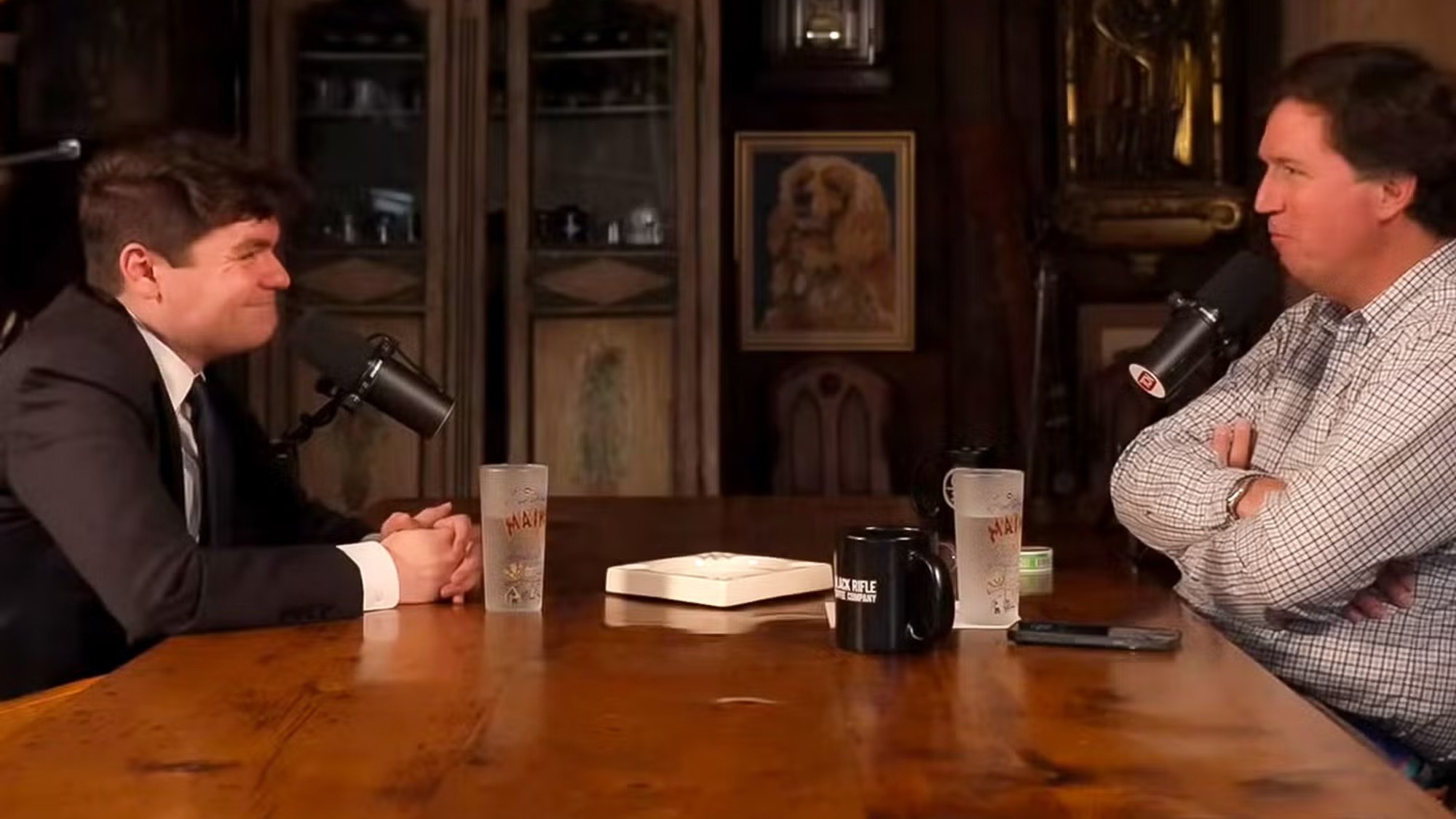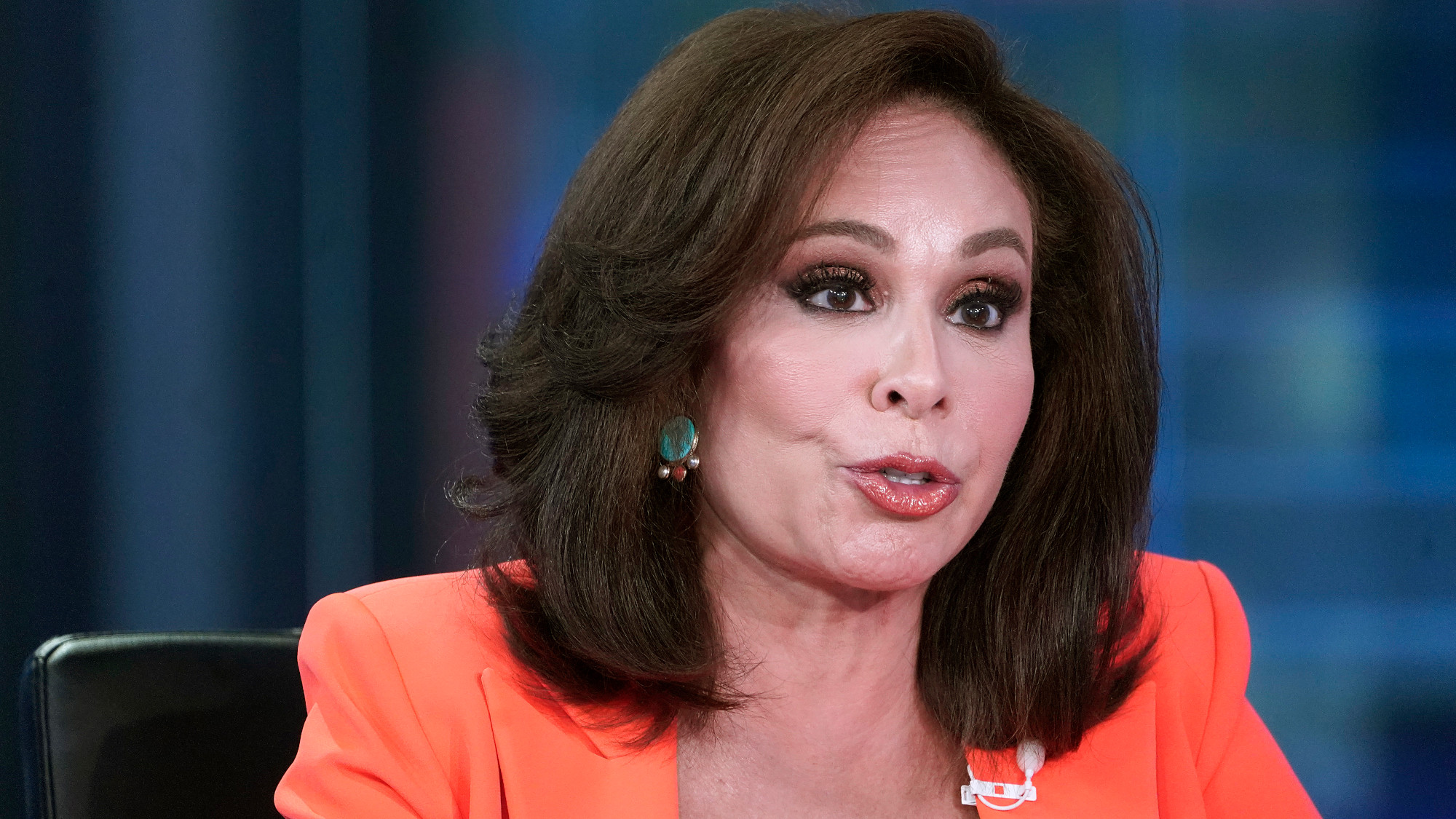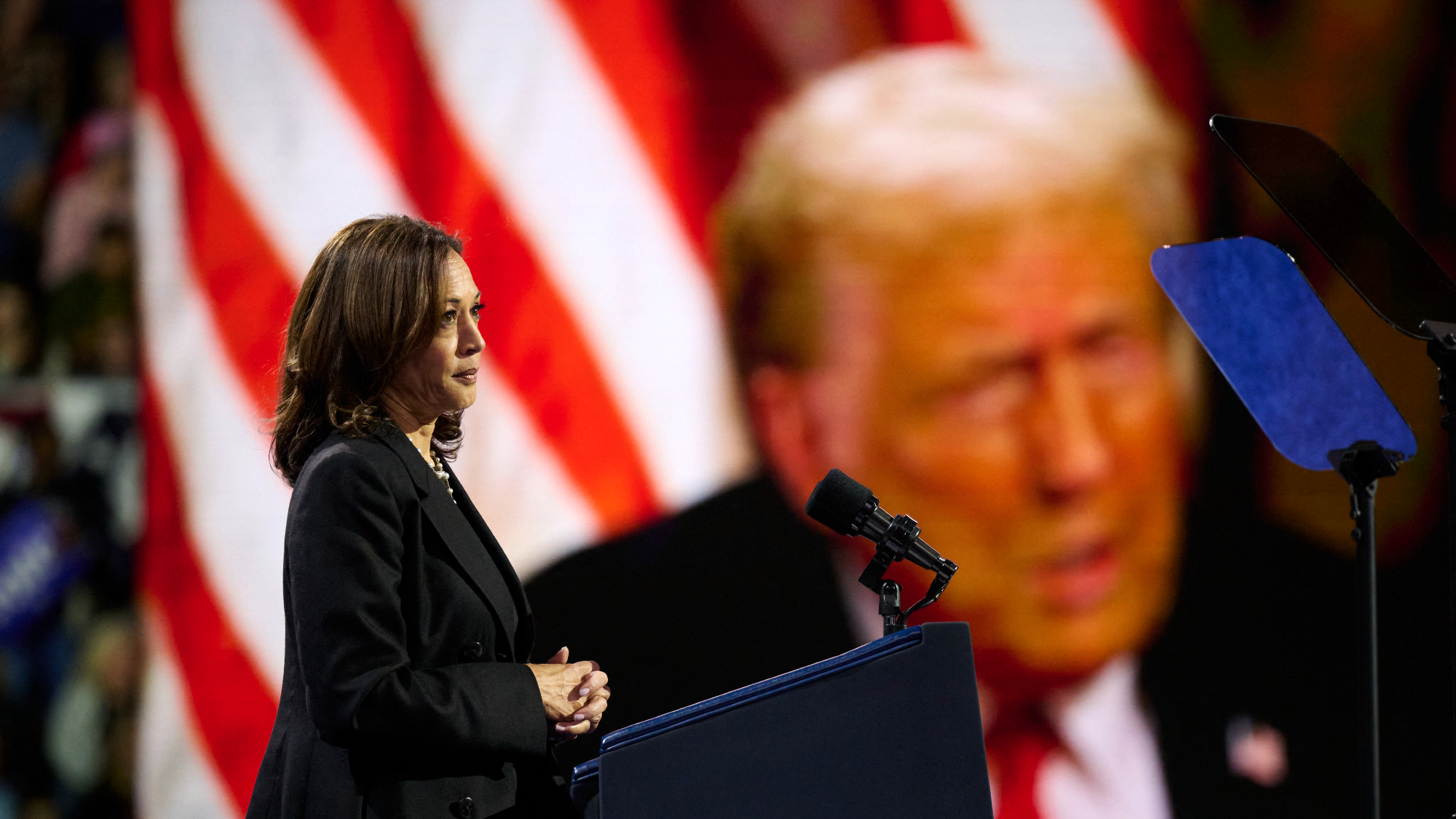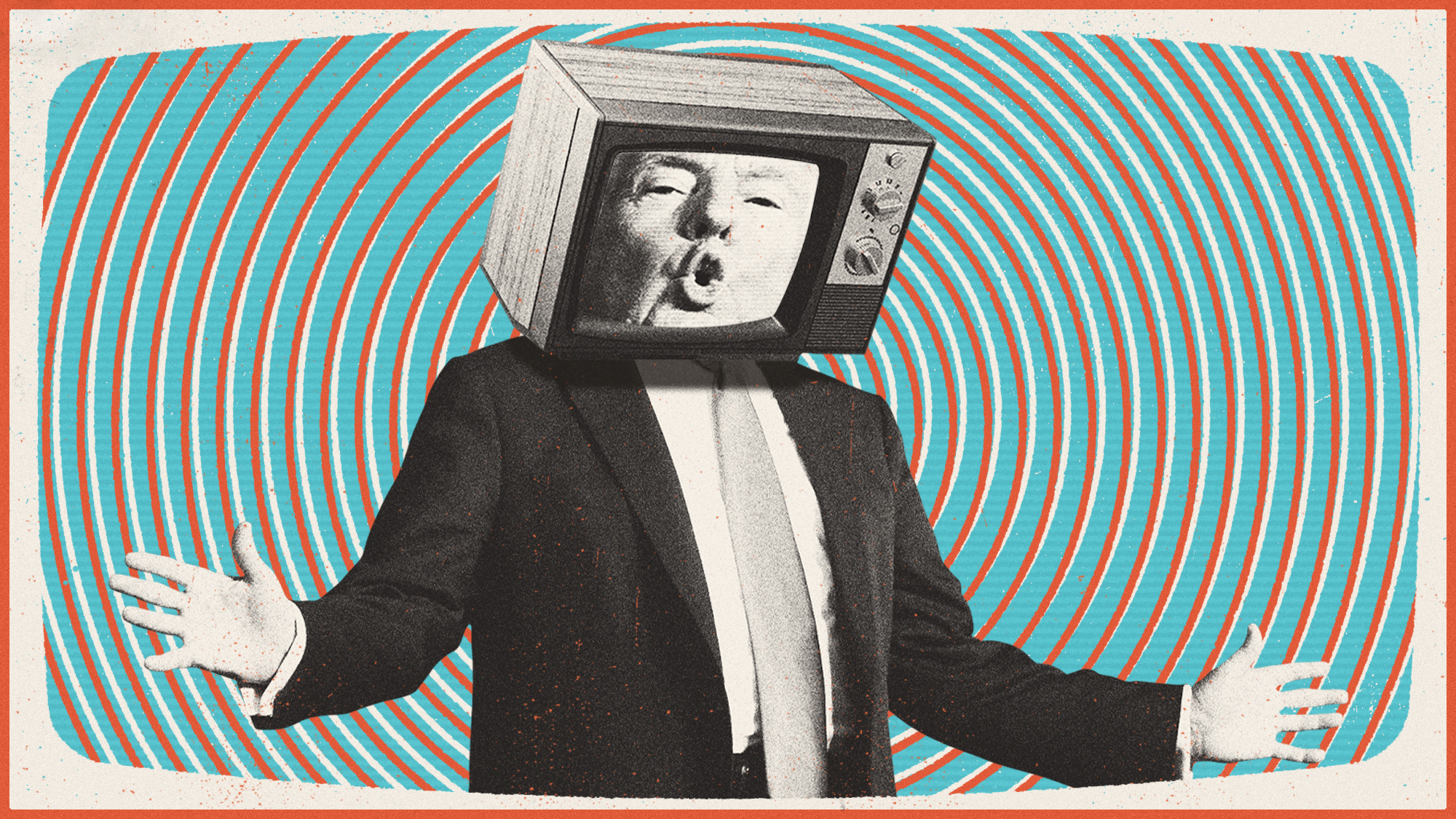Why there's likely more to Tucker Carlson's firing than just racist texts
The former Fox anchor's lamentation over "how white men fight" was reportedly the pivotal moment in his dismissal by the network. But is that the whole story?


A free daily email with the biggest news stories of the day – and the best features from TheWeek.com
You are now subscribed
Your newsletter sign-up was successful
On the night of Jan. 6, 2021, just hours after a mob of violent supporters of former President Donald Trump had breached the Capitol building in the culmination of a months-long effort to subvert the results of the presidential election, Tucker Carlson was up late, texting with the producer of his eponymous Fox News program. In and of itself, this is hardly remarkable — as the network's top broadcaster, it's perfectly understandable that Carlson and his team would be awake, discussing the day's historic significance and meaning. But as The New York Times reported, Carlson's messages would later prompt "a panic at the highest levels of Fox" when they were uncovered two years later — just as the company was set to defend itself against a massive defamation lawsuit for knowingly airing false claims of 2020 election fraud.
Within days of discovering the texts, Fox would settle its case with Dominion Voting Systems, and fire Carlson shortly thereafter. These seismic decisions to pay nearly $800 million, and then dismiss its biggest star came, the Times claimed, as "the board grew concerned that the message could become public at trial when Mr. Carlson was on the stand, creating a sensational and damaging moment that would raise broader questions about the company." While not the sole reason for his firing, the text nevertheless "contributed to a chain of events that ultimately led to" his ouster. But while the text displayed racism and bloodlust — even as Carlson seemed to grapple with the morality of the latter — it was not, as many have since observed, any more extreme or incendiary than his nightly broadcasts.
Here is the message in its entirety:
The Week
Escape your echo chamber. Get the facts behind the news, plus analysis from multiple perspectives.

Sign up for The Week's Free Newsletters
From our morning news briefing to a weekly Good News Newsletter, get the best of The Week delivered directly to your inbox.
From our morning news briefing to a weekly Good News Newsletter, get the best of The Week delivered directly to your inbox.
A couple of weeks ago, I was watching video of people fighting on the street in Washington. A group of Trump guys surrounded an Antifa kid and started pounding the living shit out of him. It was three against one, at least. Jumping a guy like that is dishonorable obviously. It's not how white men fight. Yet suddenly I found myself rooting for the mob against the man, hoping they'd hit him harder, kill him. I really wanted them to hurt the kid. I could taste it. Then somewhere deep in my brain, an alarm went off: this isn't good for me. I'm becoming something I don't want to be. The Antifa creep is a human being. Much as I despise what he says and does, much as I'm sure I'd hate him personally if I knew him, I shouldn't gloat over his suffering. I should be bothered by it. I should remember that somewhere somebody probably loves this kid, and would be crushed if he was killed. If I don't care about those things, if I reduce people to their politics, how am I better than he is?
'Too credulous'
"After years of Carlson going on the air every weeknight to espouse white nationalism, foment racial hatred, and demean people of color with racist tropes and stereotypes, we're supposed to accept that the Fox board somehow came to its senses when confronted with a single 18-month-old text?" asked Talking Points Memo's David Kurtz.
"It's simply way too credulous to pretend" the racism and violence in the message was more notable than his nightly broadcasts, Kurtz concluded, acknowledging at the same time a Washingon Post report which claimed that after seeing the text Fox's board "planned to retain a law firm to investigate Carlson's behavior." Previous reporting from that outlet had already pointed to Carlson's fraying relationship with network head Rupert Murdoch, along with allegations of creating a sexist, inhospitable workplace, as being among the contributing factors in his ousting.
Still, the comparison between Carlson's on-air behavior and the seemingly outsized attention paid to this text, in particular, was conspicuous enough for MSNBC's Medhi Hasan to dedicate a portion of his Tuesday evening broadcast to Tucker's previous comments.
A free daily email with the biggest news stories of the day – and the best features from TheWeek.com
'The bloodlust' is what matters
Writing in The Washington Post, columnist Philip Bump attempted to parse Carlson's exact language for further insight into why the text has been given such apparent significance, ultimately concluding that what is "striking" about the message "is the bloodlust." Speculating that the video Carlson had been watching was one shared by the New York Post in December 2020, Bump highlights that the "Antifa creep" in question is black while the people attacking him were not only white, but were festooned in Proud Boy paraphernalia. "Carlson's visceral support for the fight, then, wasn't just his approval of violence," Bump noted. "It was explicitly support for political violence" tinged not only with racism, but which contradicted his on-air assurances that, as Bump put it, "he and others on the right were not so feral as to embrace violence. That was what they did."
Comparing Carlson's text with a violent homophobic anecdote he'd shared in 2007 during his brief stint on MSNBC, The Nation's Joan Walsh seemingly agreed with Bump, writing that "Carlson exudes a fragile, panicky masculinity in so many ways, most recently in his advocacy of 'testicle tanning' to combat American men's declining testosterone levels."
"I don't know" why Carlson was ultimately fired, Walsh concluded. "But I do know it wasn't about racism."
For Mediaite Editor-in-Chief Aidan McLaughlin, the simple explanation offered by the initial Times report remains, in his words, "plausible." The Fox board and its executives "saw [Carlson's] racist murder fantasy text on the eve of the Dominion trial and, fearing it could come out in a courtroom packed with hundreds of reporters, saw it as a particularly acute threat to the brand, which has taken an unprecedented beating in recent months." Accordingly, the text itself wasn't the sole reason for his firing, but was in many ways, the final straw.
Something more?
Ultimately, in a narrative that has taken particular hold among some right-wing commentators, the Tucker text may simply be part of a broader effort by Fox itself to smear Carlson after having fired him.
As the New York Times wrote in the initial report on Carlson's inflammatory text, Fox's decision may have ultimately been made with an eye toward one of its next major lawsuits, from a company stockholder who has alleged mismanagement by Fox in regards to its handling of the Dominion suit. "It was not guaranteed that the text would have been revealed in open court," the Times wrote. "Dominion's lawyers had still not decided whether they would introduce the text in front of the jury, according to people with knowledge of their plans." Ultimately, by settling the case, the decision was rendered moot before it came due. However, "how Fox's executives and board handled the case in the months before the trial was scheduled to begin is expected to be at issue in shareholder lawsuits filed against the company in Delaware."
Rafi Schwartz has worked as a politics writer at The Week since 2022, where he covers elections, Congress and the White House. He was previously a contributing writer with Mic focusing largely on politics, a senior writer with Splinter News, a staff writer for Fusion's news lab, and the managing editor of Heeb Magazine, a Jewish life and culture publication. Rafi's work has appeared in Rolling Stone, GOOD and The Forward, among others.
-
 The environmental cost of GLP-1s
The environmental cost of GLP-1sThe explainer Producing the drugs is a dirty process
-
 Greenland’s capital becomes ground zero for the country’s diplomatic straits
Greenland’s capital becomes ground zero for the country’s diplomatic straitsIN THE SPOTLIGHT A flurry of new consular activity in Nuuk shows how important Greenland has become to Europeans’ anxiety about American imperialism
-
 ‘This is something that happens all too often’
‘This is something that happens all too often’Instant Opinion Opinion, comment and editorials of the day
-
 American antisemitism
American antisemitismFeature The world’s oldest hatred is on the rise in U.S. Why?
-
 The GOP: Will it welcome antisemites?
The GOP: Will it welcome antisemites?Feature That Carlson would grant Fuentes access to his massive audience is proof that his hate ‘is entering the MAGA mainstream’
-
 Nick Fuentes’ Groyper antisemitism is splitting the right
Nick Fuentes’ Groyper antisemitism is splitting the rightTalking Points Interview with Tucker Carlson draws conservative backlash
-
 Fox’s Kilmeade sorry for ‘just kill’ homeless remark
Fox’s Kilmeade sorry for ‘just kill’ homeless remarkSpeed Read Kilmeade’s ‘rare on-air apology’ also served as Fox News’ response to the controversy
-
 Pirro: Trump turns to another loyalist
Pirro: Trump turns to another loyalistFeature Trump appoints Jeanine Pirro, a 2020 election denier, as U.S. attorney
-
 Trump taps Fox News' Pirro for DC attorney post
Trump taps Fox News' Pirro for DC attorney postspeed read The president has named Fox News host Jeanine Pirro to be the top federal prosecutor for Washington, replacing acting US Attorney Ed Martin
-
 Harris spars on Fox News, Trump does Univision
Harris spars on Fox News, Trump does UnivisionSpeed Read Kamala Harris' Fox News debut was a play to get her message across to millions of conservative-leaning voters
-
 How the far-right media bubble failed Donald Trump
How the far-right media bubble failed Donald TrumpIn the Spotlight By ensconcing himself in the comfort of friendly — and increasingly conspiracy-driven — media, the former president is stuck in a feedback loop of his own making
